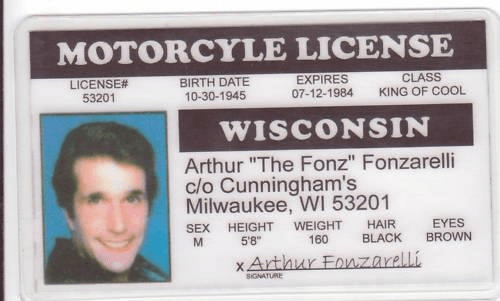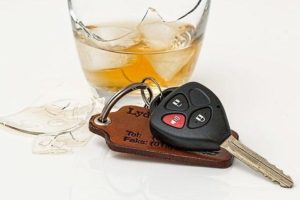Getting a motorcycle license is the first step to legally riding your motorcycle. Some states have a separate motorcycle license or permit, while other states simply add a motorcycle endorsement to your traditional driver’s license. The motorcycle license requirements vary, so it is important to contact your local department of motor vehicles and find out the regulations in your area.
Before you ever ride a motorcycle, you are legally required to have a license. Getting a motorcycle license is a must even if you want to test drive a motorcycle or just ride your buddy’s bike, you really need to have a motorcycle license or permit. You never know when a crash can occur, and believe it or not- crashes can and do happen your first time on a bike. Don’t take any chances! Get your permit and ride legally. Remember that approximately 25 percent of motorcycle crashes involve bikers who are improperly licensed. Let this be a warning to you to get a license if you do not have one already!
For a free legal consultation,
call 1-800-668-6729
Motorcycle license requirements vary from state to state, but in general, you must complete a driver’s education program and take a motorcycle knowledge test. Many states allow you to get a permit in order to learn how to ride a motorcycle before you get your full motorcycle license. Think of this as a learner’s permit for driving a car. It may allow you to ride your motorcycle only during certain hours and may restrict you from carrying a passenger. In addition, in some states, you must be accompanied by a motorcycle license holder on a separate motorcycle. You may be able to skip this step if you enroll in a training program for bikers. Whether you opt to go this route or not, an approved training program is a great idea for both new and experienced bikers. It may also lower your motorcycle insurance rate.
Motorcycle training programs are required for licensure in many states. Be sure to select a program that is approved by your state Department of Motor Vehicles. Your DMV likely has a list of providers they have approved to offer training. A basic course is generally inexpensive and often takes place during the weekend, so you should have no problem finding one that will meet your needs. You will learn the basics of biking, how to maneuver your bike, safe riding strategies, proper gear, and how to avoid collisions. This is a great time to learn what to do in the event of a motorcycle crash.
Click to contact our personal injury lawyers today
While learning to ride a motorcycle, take advantage of the knowledge of others. This is a great time to attend local motorcycle events and talk to other bikers. Every biker has a story of a crash or a near miss to share, and you will learn plenty of tips. Learn the laws for bikers in your state. Check the Department of Motor Vehicles website for your state or visit your local office and pick up a copy of the motorcycle laws handbook. Since the laws may be different from state to state, it’s also important to learn the laws of other states you may travel in.
Complete a Free Case Evaluation form now
Motorcyclists are 26 times more likely per mile traveled to die in a fatal crash. Do not underestimate the value of a good biker education. Part of a good education is learning to use the proper gear. Gear, including a good helmet, is important for all bikers but is especially critical for new bikers who may be more likely to crash. In addition to gear, a good education is valuable. If you have completed a basic training course for new bikers, check to see if your teacher offers classes for advanced bikers.
As you begin your experience as a biker, be mindful of others on the road around you. Ride carefully, obey the law, and use proper precautions to avoid crashes. If you are involved in a crash, even if you feel you may have been at fault, contact the experienced motorcycle crash attorneys who are also bikers- call on the team atKass & Moses.
Call or text 1-800-668-6729 or complete a Free Case Evaluation form


